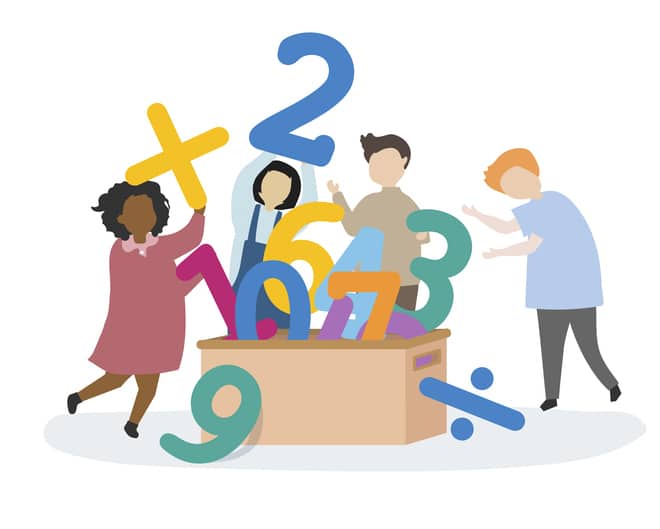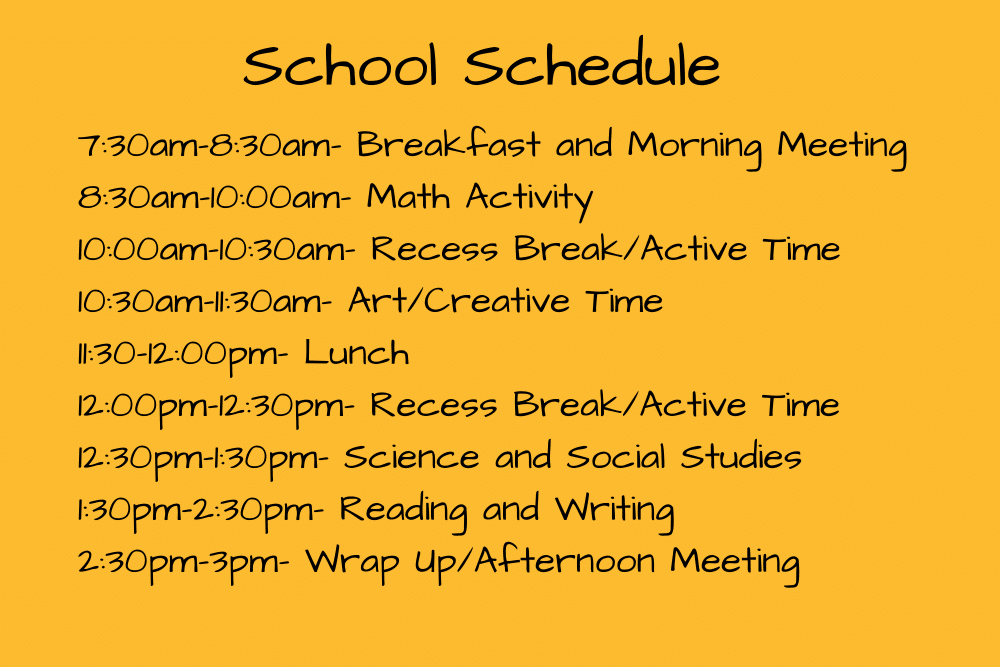 With schools all over the country closing for weeks or even months, many parents like you are having to suddenly become teachers. You may be feeling overwhelmed and a bit unprepared at the moment and that is okay. Know that these feelings are completely valid and you are definitely not alone. We are here to help provide you with the information and support you need to make sure your children are still getting a great education even when they cannot be in the classroom.
With schools all over the country closing for weeks or even months, many parents like you are having to suddenly become teachers. You may be feeling overwhelmed and a bit unprepared at the moment and that is okay. Know that these feelings are completely valid and you are definitely not alone. We are here to help provide you with the information and support you need to make sure your children are still getting a great education even when they cannot be in the classroom.
Table of Contents
- Learning Resources for Parents Homeschooling During the Coronavirus
- Language Arts: Reading and Writing
- Writing prompts and activities
- Math
- Science
- Social Studies
- Survival Tips for Teaching at Home During Coronavirus
We have created a comprehensive list of tips and resources that you can use while teaching from home. The information outlined below is intended to help you create a plan of action for teaching your children during the coronavirus.
Learning Resources for Parents Homeschooling During the Coronavirus
There are plenty of resources available to help you teach your child(ren) from home. Most of the resources listed - particularly for math - are digital.
If you currently have a hard rule of no screens or limited screen time, explain to your child(ren) that the rule doesn’t apply to learning and using a computer or tablet for school is not the same as watching Youtube videos or playing video games.
All of the resources I have listed below are free and many, particularly the math ones, are interactive.
Language Arts: Reading and Writing

You might already read to your child(ren) at home or they read independently on their own, but you aren’t 100% sure how to tackle teaching reading and writing.
How you approach reading time will largely depend on what grade level(s) you are dealing with.
Your child(ren) could very well have been in the middle of a book when the school closed. If that is the case, have them continue reading that book and write summaries or journal about what they read that day.
If your kid(s) can read independently but aren’t currently assigned a book, choose one from the reading lists linked below and have them read and then write about what they read or discuss it with you verbally.
If they are unable to read independently, you can choose a book to read aloud to them and discuss the book after you are done.
Writing isn’t quite as straightforward as reading when it comes to remote learning. You will need to choose activities and projects that are engaging and help build writing skills.
Writing prompts and activities
Below are links to some of the blog posts with writing prompts, activities, project ideas and more. Feel free to browse more of our posts to find even more prompts and writing activities.
Note: Most of our content is geared toward teachers in the classroom but the writing prompts and activities can be easily used at home too!
- My Life in Words! Personal Narrative Writing Prompts for Elementary Student
- Imaginative Kindergarten Writing Prompts That Build Vocabulary
- 5 Inspiring Spring Story Starters for 1st Grade
- Engaging 2nd Grade Writing Prompts That Promote Creative Writing
- 3 Narrative Writing Prompts for 3rd Grade About Staying Positive
- 4th Grade Narrative Writing Prompts: Helping Others
- 4 Fun Narrative Writing Prompts for 5th Grade
Now is a great time to start a cool writing project that your child can get excited about. Creating and publishing a book is a great project that your kiddo can do to work on their vocabulary, story structure, grammar, etc.
You can even combine other subjects into the project. Your child can create a book about a person from history that they learned about for social studies or one about how the weather works. They could even make individual pages for each day that they are learning from home and document their experience. We have a lot of sample books and topic ideas that you can explore here to help inspire the project.
The process of completing a book project and publishing is simple. You order your Home Author Kit and you’ll receive an instant download with everything you need to get started. Once your child completes their book pages, ship it back to us then, within 20 days you will have a professionally bound book and your child is now a published author!
We also have a variety of free, printable writing worksheets, lesson plans and graphic organizers that you can use to support your lessons!
- Kindergarten lesson plans and worksheets
- 1st grade lesson plans and worksheets
- 2nd grade lesson plans and worksheets
- 3rd grade lesson plans and worksheets
- 4th grade lesson plans and worksheets
Math

- Math video game for grades 1-8: https://play.prodigygame.com/
- Multiple game options for Pre-K-8: https://www.funbrain.com/
- Multiple game options or grades 1-6: https://www.mathplayground.com/
Science
- Science games for grades K-5: https://pbskids.org/games/science/
- Animals: www.kids.nationalgeographic.com
- Element flash cards
- Science crossword puzzles
Social Studies
- Multiple topics with worksheets: https://www.historyforkids.net/
- Liberty’s Kids Youtube videos: https://www.youtube.com/channel/UC5pJi9mLIy38m2e_u3sboKQ
Survival Tips for Teaching at Home During Coronavirus
 1. Create a Schedule
1. Create a Schedule
I have yet to meet a teacher who does not have a daily schedule and routine set for their students. This is how many of us maintain our sanity.
Use a whiteboard or a piece of poster board to write out the schedule. I highly suggest organizing the day by subject and sticking with that schedule for the coming weeks. You can make adjustments as needed, but having a set routine for the day will help your child(ren) feel more secure. Their lives have been turned upside down and something that helps all humans get a sense of stability is routine.

 2. Keep Lesson Plans and Resources Organized
2. Keep Lesson Plans and Resources Organized
I do not know what every teacher has sent out in regards to lesson plans, but I do know that you don’t want to be scrambling to get everything together and ready at 7am on a Monday.
I highly recommend using a spreadsheet to organize daily lessons (example below). If you aren’t a spreadsheet person, you can set up a simple word doc with daily lessons and links to resources. Google Drive is free and allows you to easily create documents and spreadsheets. You can even use pen and paper if that is more your style.
| Date | Subject | Activity | Resources/notes |
| 3/30/2020 | Math | Multiplication Game | https://www.funbrain.com/games/math-baseball |
| Art | Creating vision boards | Buy magazines/poster board or create in Powerpoint | |
| Social Studies | Video on Declaration of Independence/write summary | https://youtu.be/LK3Cs8EgOQo | |
| Science | Periodic Table Game | https://education.jlab.org/elementflashcards/ | |
| Language Arts | Brainstorm book ideas | https://studentreasures.com/blog/3-helpful-brainstorming-worksheets-for-elementary-students/ |
 3. Designate Work Spaces
3. Designate Work Spaces
When your children enter the classroom, they know that it is time to learn because their brains have associated that space with learning. The adjustment of not entering a physical classroom outside of the home is difficult, but designating work spaces can help them focus and stay on task while homeschooling.
Now, I am not saying that they need to be seated at the kitchen table all day, I actually would advise against that. Switch up where specific subjects are studied as part of the routine. For example, use the kitchen table for math and science and the couch and coffee table for reading and writing. Just make sure that these spaces are only used for learning during that time.
You also want to make sure that you limit distractions in these areas. That includes putting up toys and turning off the TV and music. Note: you can definitely play relaxing music during silent reading and free-writing time or while working on arts and crafts but refrain from having it on during instruction.
 4. Take Breaks
4. Take Breaks
Take regular breaks throughout the day. This will benefit you just as much as it does your child(ren). Students have a couple recesses and a lunch break during the normal school day so add these breaks into the daily schedule. Pro-tip: recess can double as P.E. GoNoodle has some great, fun physical activities for kids that you can use.
We don’t use screens during breaks and I suggest you do the same. Go outside and enjoy some sunshine - and have that extra cup of coffee if you need it! If the weather is rainy and cold, play board games or do a fun dance workout indoors.
 5. Start and End the Day with a Meeting
5. Start and End the Day with a Meeting
I have heard of teachers starting and ending the school day with a class meeting and I think it is a great way to set expectations and evaluate progress.
Meet with each of your children for 5-10 minutes before you start your day to discuss what they will be learning about. Most teachers will have their meetings with the whole class but, if you are teaching multiple kids and they are in different grade levels, individual meetings are going to be ideal.
At the end of the day, meet with them again to discuss any questions, check to see if they completed their work, and grade their work if necessary. You can also use this time to tell them about what they will be learning about the next day.
 6. Be Ready to Relearn
6. Be Ready to Relearn
So, it has probably been awhile since you have had to divide fractions or do long division and you will need to relearn how to do these things and more.
For those of you who have kids that are in kindergarten-2nd grade, this may not be too difficult but 3rd, 4th and 5th grade parents might have to do some of their own homework in order to teach certain lessons (looking at you 5th grade algebra).
Fortunately, we live in the digital age and you can find a variety of resources to help you learn pretty much anything. We have included some resources below but don’t be afraid to do some digging on your own.
You can also enlist the help of a significant other or relative. Are you a fantastic writer but math is more your SO’s thing? Ask them to help you relearn certain concepts or if they are also working from home, have them teach that subject!
Think of it this way: when the kids do make it back into the classroom, it will be a lot easier to help them with their homework!
 7. Make Time to Socialize
7. Make Time to Socialize

One big thing that the kids are missing out on while schools are closed is socializing with their peers. Socializing and learning how to interact with others is a very important part of their development. In addition to schools being closed, your kids’ recreational activities have likely been cancelled, you are staying away from parks and play dates are becoming a huge no-no so, what do you do?
I suggest letting your child facetime/video chat with their friends. Reach out to other parents and see if you can set up a time that works for everyone.
This doesn’t necessarily have to be part of the school day. You can schedule video calls in the evenings or on weekends, the point is that they get to interact with their peers and get to talk with people that aren’t in their household.
What is going on in the world right now is unprecedented and adjusting our way of life is challenging to say the least. Many of my peers are heartbroken that they will not be returning to their students after spring break and want nothing more than for this to all go away.
Look at this as an opportunity to get creative and connect with your child(ren) in a unique way. You might not have a teaching degree but you can do this!
You may feel tired or frustrated at times and that is okay. In fact, teachers feel the same way sometimes!
It doesn’t have to be perfect and not having all of the answers is okay. Just do your best, be honest with your children about the situation and make the most out of this time with them. I also suggest shooting those special teachers a nice email expressing your appreciation or better yet, have your child(ren) write them a letter and make it part of your lesson plan!
If you have any questions, feel free to comment below. You can also reach out to us on Facebook, Instagram or Twitter any time!






